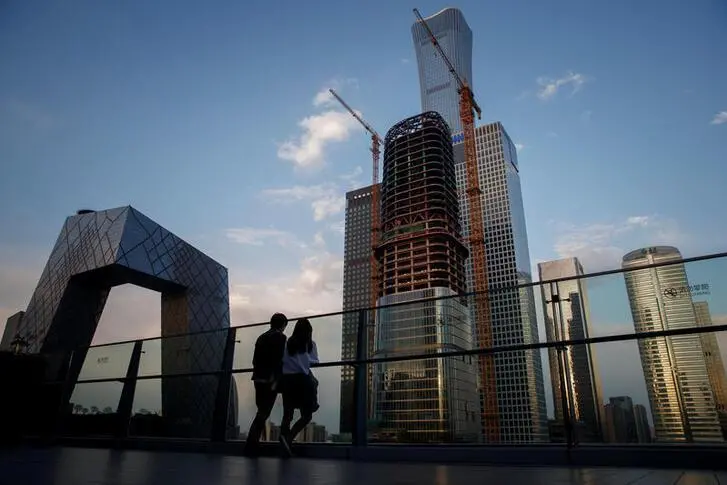PHOTO
Jan 19 (Reuters) - China has instructed heavily indebted local governments to delay or halt some state-funded infrastructure projects, three people with knowledge of the situation said, as Beijing struggles to contain debt risks even as it tries to stimulate the economy.
Increasing its efforts to manage $13 trillion in municipal debt, the State Council in recent weeks issued a directive to local governments and state banks to delay or halt construction on projects with less than half the planned investment completed in 12 regions across the country, the sources said.
Beijing has been tightening curbs on debt in recent months to defuse risks to the world's second-largest economy and its financial stability, while also trying to stimulate growth that has long relied on infrastructure investments by local governments.
Infrastructure targeted in the latest directive, which has not been previously reported, includes expressways, airport reconstruction and expansion, and urban rail projects, one source said.
Some projects, such as those approved by the central government or for affordable housing, are exempt, two sources said.
The sources asked not to be identified as the directive was confidential.
The State Council Information Office, which handles media queries for the council, China's cabinet, did not respond to a request for comment.
Reuters reported in October that the council had restricted the ability of local governments in the 12 regions to take on debt and limited the state-funded projects they could launch.
Then it ordered local governments to halt "problematic" public-private partnership projects and placed other limits on investment, Reuters reported in November.
PROPERTY CRASH HANGOVER
The new directive gives a more detailed list of infrastructure projects for the governments to avoid, two sources said. One said the governments must reduce the scale of investments for projects with an investment completion rate above 50%.
China's top leaders said it was necessary to coordinate and resolve the risks emanating from property, local debt and small and midsize financial firms, state media said in December, citing a Central Economic Work Conference.
Beijing is concerned about potential default due to the local governments' large debts and weaker growth prospects, the sources said. China's local government debt hit 76% of gross domestic product in 2022, the latest data available, up from 62% in 2019 and dwarfing central government debt at 21%.
Local governments' debt woes were triggered by a crash in property prices and a cash crunch that left developers unable to buy more land, traditionally a key revenue source, and fewer options for raising funds as growth slowed.
China's economy grew 5.2% in 2023, slightly above the official target, but the recovery was far shakier than many analysts expected, weighed down by the mounting local government debt and deepening property crisis.
The indebted regions targeted by the State Council include Liaoning and Jilin provinces on the border with North Korea, Guizhou and Yunnan in the southwest and the cities of Tianjin and Chongqing cities.
Those regions should make every effort to reduce their "debt risk to the low and medium level", but the directive does not specify how the debt reduction will be measured, one of the sources said.
Once local governments reach their debt-cutting targets, the National Development and Reform Commission (NDRC), China's top economic planner, is to seek cabinet approval to adjust their debt policies for fresh infrastructure investments, the source said.
The NDRC did not respond to a request for comment. (Reporting by Reuters Staff; Editing by Sumeet Chatterjee and William Mallard)





















